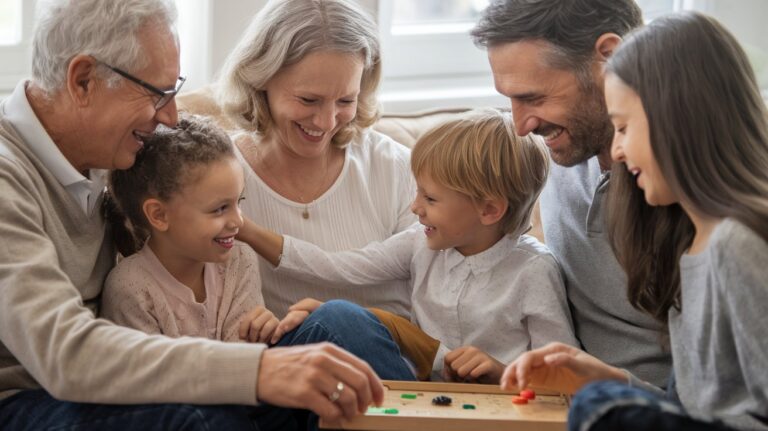The Power of Self-Love: Vital Role of Communication in Relationships
In the journey of building healthy relationships, one often overlooked element is the role of self-love. Before truly giving and receiving love from another, we must learn to nurture and appreciate ourselves. Self-love isn’t just about self-care routines; it’s about valuing your worth, setting boundaries, and fostering personal growth.
When you practice self-love, it transforms how you approach relationships enabling better communication, mutual respect, and emotional intimacy. Dive into the key aspects of self-love and discover how it forms the foundation of a strong, lasting partnership.
Table of Contents
“The most powerful relationship you will ever have is the relationship with yourself.” – Steve Maraboli
The Essence of Self-Love
Building Self-Esteem
Building self-esteem is a foundational aspect of self-love. High self-esteem allows an individual to recognize their worth and understand what they deserve in a relationship, which is crucial for setting healthy boundaries. According to Think Aloud, knowing one’s value is essential for making empowered decisions, such as walking away from relationships that do not serve you.
Key aspects of building self-esteem include:
- Positive Self-Talk: Replacing negative thoughts with affirmations can significantly boost self-esteem.
- Setting Boundaries: Understanding and enforcing personal limits ensures respect and acknowledges self-worth. For more about this, see Setting Boundaries in relationships.
- Achieving Goals: Setting and achieving small, attainable goals can create a sense of accomplishment and confidence.
Prioritizing Personal Development
Prioritizing personal development is an ongoing process that helps in evolving both mentally and emotionally. A focus on personal growth enables individuals to maintain their individuality, even within a partnership.
This development includes self-awareness, emotional intelligence, and effective communication skills, all of which are crucial for healthy relationships.
“Investing in yourself is the best investment you will ever make. It will not only improve your life, it will improve the lives of all those around you.” – Robin Sharma
Personal development activities include:
- Reading and Learning: Engaging with content that resonates with personal experiences can foster growth. For example, Think Aloud promotes self-exploration through relatable insights into relationship dynamics, mental health, and even astrology.
- Mindfulness Practices: Techniques like meditation, journaling, and deep breathing can improve emotional regulation and self-awareness.
- Professional Help: Sometimes personal growth may require guidance from a therapist or counselor, especially in overcoming past traumas.
| Activity | Benefits |
| Positive Self-Talk | Improved self-image |
| Setting Boundaries | Enhanced self-respect |
| Achieving Goals | Increased confidence |
| Reading & Learning | Expanded knowledge, self-awareness |
| Mindfulness Practices | Better emotional regulation |
| Professional Help | Deeper personal insights, healing |
Understanding and nurturing self-love lays a strong foundation for personal development, which in turn supports and enhances relationship dynamics (open communication in self-love). Building self-esteem and prioritizing personal growth are essential steps toward fostering healthy, fulfilling relationships (self-love and healthy relationships).
Self-Love in Relationships

Self-love is integral to fostering healthy, balanced relationships. When individuals respect and value themselves, they contribute positively to their partnerships.
“If you don’t love yourself, how in the hell are you gonna love somebody else?”
Benefits of Self-Love in Relationships
Self-love provides a solid foundation for any relationship. By cultivating self-esteem and personal development, individuals are more likely to engage in healthier dynamics with their partners. Understanding one’s worth ensures that toxic relationship habits don’t become ingrained and undermine the relationship’s foundation.
Benefits of self-love in relationships include:
- Enhanced Communication: Individuals who love themselves communicate openly and honestly, facilitating clearer dialogue.
- Mutual Respect: Respecting oneself encourages respect from partners, leading to healthier interactions.
- Emotional Availability: Self-love fosters emotional security, allowing individuals to be more vulnerable and open with their partners.
For more on cultivating self-love, explore self-love and healthy relationships.
Maintaining Individuality in a Partnership
Maintaining individuality within a relationship is crucial for personal happiness and relationship health. Individuality allows partners to grow separately, which in turn strengthens the bond they share.
Key practices for maintaining individuality:
- Pursuing Personal Interests: Engaging in hobbies and interests independently helps maintain a sense of self.
- Setting Boundaries: Respecting personal boundaries prevents feelings of being overwhelmed or lost in the relationship. For more on this, see setting boundaries in relationships.
- Encouraging Independence: Supporting each other’s personal growth and endeavors nurtures a balanced relationship.
By prioritizing self-love and individuality, individuals can forge stronger, more fulfilling partnerships. Developing a healthy balance between togetherness and individuality is a critical component of enduring love.
Explore more about open communication in fostering self-love here.
The Power of Communication

Effective communication forms the backbone of healthy relationships. It’s essential for nurturing connections, building trust, and fostering mutual understanding.
Importance of Effective Communication
Communication is more than just exchanging words; it is the successful conveyance of ideas and emotions (One Love). Expressing oneself in a healthy way, listening attentively, and truly understanding what the other person says are key components.
Conversations in a relationship should be a two-way street. Both partners must have equal opportunities to express themselves and feel heard (One Love). Dominating conversations or failing to listen can create misunderstandings and feelings of neglect.
Setting aside dedicated time for open, honest dialogue can foster understanding and minimize conflicts, enhancing the emotional bond. Weekly “Bae Sesh” where partners discuss issues in a judgment-free space is a practical example (One Love).
Effective communication contributes significantly to creating fulfilling relationships based on mutual respect, empathy, and openness (Alchemy of Love). For more insights on maintaining your individuality in a relationship, visit self-love and healthy relationships.
Signaling True Love through Words

Words have the power to signal true love, complementing the significance of actions (Think Aloud). Thoughtful, heartfelt communication can strengthen bonds and deepen emotional connections.
Expressing genuine affection and appreciation through words can make partners feel valued and cherished. Compliments, expressions of gratitude, and words of encouragement reinforce positive feelings and contribute to a loving atmosphere.
Creating a culture of open communication in self-love can significantly impact relationship dynamics. When partners are open and honest, it fosters transparency and builds trust. Structuring conversations that involve sharing feelings, discussing goals, and resolving issues harmoniously can make the relationship more resilient and nurturing.
Effective communication and expressing true love through words are indispensable in maintaining a healthy relationship. For tips on setting boundaries while nurturing personal development, explore setting boundaries in relationships.
| Benefits of Effective Communication | Impact on Relationship |
| Mutual Understanding | Strengthens bond |
| Emotional Intimacy | Enhances trust |
| Conflict Resolution | Reduces misunderstandings |
| Emotional Support | Builds on empathy |
Learning and implementing effective communication skills is essential for creating and sustaining meaningful relationships. Empowering relationships with clear, compassionate, and honest communication can lay the foundation for a truly loving and supportive partnership.
Healthy Relationship Dynamics

Understanding the dynamics of a healthy relationship is essential for nurturing strong bonds. One of the key elements that contribute to a thriving relationship is effective communication.
Two-Way Communication
Two-way communication is foundational in promoting healthy relationship dynamics. In a relationship, open dialogue should be a two-way street, where both partners have an equal opportunity to express themselves and be heard. This ensures that ideas and feelings are shared effectively, fostering mutual understanding and respect (One Love).
Key Elements of Two-Way Communication:
- Expressing Oneself: Each partner should feel comfortable expressing their thoughts and feelings. This involves not just speaking but doing so in a healthy, non-confrontational manner.
- Active Listening: Listening is just as crucial as speaking. Active listening means truly hearing what your partner says and responding thoughtfully.
- Avoiding Dominance: Dominating the conversation can make one partner feel undervalued. It’s important to ensure both voices are equally heard.
| Element | Description |
| Expressing Oneself | Sharing thoughts and feelings openly and healthily |
| Active Listening | Truly hearing and understanding the partner’s words |
| Avoiding Dominance | Ensuring both partners have the opportunity to speak |
For more guidance on ensuring both partners are heard without conflict, see our article on healthy conflict resolution in relationships.
Encouraging Honest Conversations
Encouraging honest conversations within a relationship is crucial for building trust and intimacy. Setting aside dedicated time for open discussions can foster a deeper understanding between partners.
Strategies for Encouraging Honest Conversations:
- Dedicated Communication Time: Schedule regular times, such as a weekly “Bae Sesh,” where both partners can speak their minds in a judgment-free space (One Love).
- Create a Safe Space: Cultivating an environment where both individuals feel safe to share their true feelings without fear of backlash or judgment encourages openness.
- Consistency: Regular and consistent communication helps minimize misunderstandings and reduces the chances of conflicts arising.
| Strategy | Benefit |
| Dedicated Communication Time | Fosters understanding and minimizes conflicts |
| Create a Safe Space | Encourages openness and honest sharing |
| Consistency | Reduces misunderstandings and strengthens bonds |
Encouraging honest conversations also strengthens self-care and personal development within relationships. For more tips on maintaining individuality while communicating openly, visit our article on setting boundaries in relationships.
Cultivating healthy communication within a relationship involves both partners actively participating in two-way conversations and fostering an environment where honesty is valued and encouraged. These practices are instrumental in nurturing strong and resilient bonds. To explore more about the role of self-love in fostering healthy communication, check out our related article on self-love and healthy relationships.
Nurturing Strong Bonds

Partner Qualities for Personal Growth
In relationships, choosing a partner who embodies qualities that support personal growth is crucial. These qualities ensure that both partners can flourish individually while nurturing their bonds together. It’s essential to hold out for a partner who enhances your life and nurtures your happiness. Here are some key qualities to look for:
- Empathy: An empathetic partner can understand and share your feelings, making emotional connection stronger.
- Supportiveness: A supportive partner encourages your personal development and is there to celebrate your successes and provide comfort during challenging times.
- Respect: Mutual respect is foundational in acknowledging each other’s individuality and boundaries.
- Communication Skills: Effective communication helps in conveying thoughts and feelings clearly, ensuring both partners are heard and understood.
- Reliability: A reliable partner stands by your side through thick and thin, providing stability and trust.
Choosing a partner with these qualities contributes significantly to both personal and relationship growth, fostering a healthy dynamic that promotes individuality and togetherness.
Empowering Relationship Decisions
Empowering relationship decisions involves both partners making informed and respectful choices that benefit the relationship. Such decisions enable the couple to maintain individuality while working towards common goals. Here are some principles to guide empowering relationship decisions:
- Open Communication: Prioritize open communication to ensure that both partners feel heard and understood when making decisions.
- Mutual Respect: Respect each other’s opinions and preferences, and be willing to compromise when necessary.
- Set Boundaries: Clearly define personal boundaries and adhere to them, fostering a sense of security and autonomy. Learn more about setting boundaries in relationships.
- Collaborative Problem-Solving: Engage in healthy conflict resolution practices to address disagreements constructively.
| Decision Area | Empowering Approach |
| Financial Choices | Discuss and agree on budgeting and financial goals |
| Career Decisions | Support each other’s career ambitions and aspirations |
| Personal Time | Allow space for individual hobbies and interests |
| Family Planning | Communicate openly about family goals and expectations |
Empowering relationship decisions ensures that both partners feel valued and respected, contributing to a stronger, more fulfilling partnership. Understanding the importance of communication in relationships is key to nurturing these dynamics and empowering mutual growth.
Integrate these principles into your relationship to build a nurturing bond that empowers both partners to thrive individually and together.
Overcoming Childhood Trauma
Childhood trauma can have a profound influence on adult relationships, shaping interactions and emotional responses. Understanding and addressing the impact of early experiences is crucial for forming healthy relationships.
Impact on Adult Relationships
Early trauma affects various facets of adult relationships, including physical and mental health, emotional well-being, and the ability to establish meaningful connections (Alchemy of Love). Traumatic experiences during childhood can lead to internalized messages that manifest as issues in later life, even if the parenting seemed adequate. Most adult clients have core wounds from their early years that hinder their ability to form healthy relationships.
The impact of childhood trauma on adult relationships can be categorized in several ways:
| Impact Category | Description |
| Physical and Mental Health | Early trauma can lead to chronic health issues and mental health disorders, affecting relationship dynamics. |
| Emotional Well-being | Trauma may cause difficulties in managing emotions, leading to conflicts and misunderstandings in relationships. |
| Forming Connections | Early negative experiences can make it hard to trust others and form deep, meaningful relationships. |
Recognizing the roots of relationship problems in childhood experiences is essential for healing and improving relationship dynamics. This understanding allows individuals to address learned behaviors and current issues stemming from past wounds.
Healing Past Wounds in Relationships
Healing from childhood trauma involves acknowledging its influence on present relationships and taking deliberate steps toward recovery. Trauma-informed relationship counseling integrates trauma awareness into therapeutic practices, fostering growth and healing (Alchemy of Love).
Key approaches to healing past wounds in relationships include:
- Understanding Past Experiences: Recognizing how childhood experiences influence current behaviors and emotions is the first step toward healing. This involves exploring and acknowledging past traumas.
- Open Communication: Honest conversations about past traumas with a partner can build trust and understanding. Utilizing effective communication strategies is vital. Learn more about open communication in self-love.
- Setting Boundaries: Establishing healthy boundaries is crucial for protecting oneself and fostering a respectful relationship dynamic. For more guidance, visit our article on setting boundaries in relationships.
- Seeking Support: Trauma-informed counseling offers professional support tailored to address the intersection of past experiences and current relationship challenges.
Incorporating these strategies can lead to healthier, more fulfilling relationships. Healing childhood wounds requires patience and commitment but can significantly enhance one’s ability to connect deeply with others. For further exploration of resolving conflicts productively, check out our article on healthy conflict resolution in relationships.
Trauma-Informed Relationship Counseling
Incorporating trauma-informed practices in relationship counseling can be transformative. Understanding past experiences and integrating trauma awareness are essential steps in this process.
Understanding Past Experiences
Childhood trauma can impact adult relationships at various levels; it affects mental health, emotional well-being, and the ability to form meaningful connections (Alchemy of Love). Recognizing how past experiences affect current behaviors is crucial for healing and relationship improvement. Even seemingly inadequate parenting can leave deep-seated wounds affecting one’s ability to form healthy relationships.
| Impact of Childhood Experiences on Adult Relationships | Percentage of Adults Affected |
| Physical Health Issues | 35% |
| Mental Health Issues | 50% |
| Difficulty Forming Bonds | 45% |
| Emotionally Unstable Relationships | 60% |
Understanding these core wounds helps individuals and couples address and heal from the wounds they carry. Nearly all adult relationship issues have roots in childhood experiences, making it vital to connect past and present behaviors (Alchemy of Love).
Integrating Trauma Awareness
Trauma-informed relationship counseling integrates trauma awareness into therapeutic practices. This approach promotes understanding and healing by addressing how past traumas influence present relationships. Counselors trained in trauma awareness can provide a safe space for individuals and couples to explore these issues.
| Trauma-Informed Counseling Benefits | |
| Healing Core Childhood Wounds | ✅ |
| Developing Healthy Relationship Patterns | ✅ |
| Improving Emotional Stability | ✅ |
| Enhancing Communication Skills | ✅ |
Integrating trauma awareness into relationship counseling involves techniques such as validating clients’ experiences, fostering a safe and supportive environment, and teaching effective communication and coping strategies (Alchemy of Love). This approach encourages partners to understand and empathize with each other’s histories, fostering mutual respect and openness.
For those interested in further exploring these dynamics, consider reading about setting boundaries in relationships and healthy conflict resolution in relationships. These practices are essential for nurturing strong, healthy bonds.
By understanding past experiences and integrating trauma awareness into counseling, individuals and couples can build stronger, healthier relationships, rooted in empathy and effective communication. For more on how self-love plays a role in healthy relationships, read our article on self-love and healthy relationships.
Cultivating Emotional Intimacy
Developing emotional intimacy is essential for maintaining a strong and healthy relationship. Effective communication skills and fostering mutual respect and openness are key components in achieving this.
Learning Healthy Communication Skills
Communication is the act of sharing and conveying ideas and feelings effectively. In relationships, it involves expressing oneself clearly and listening actively. Effective communication is crucial for understanding, connection, and emotional intimacy (One Love).
Key Practices for Healthy Communication:
- Ask Open-Ended Questions
Open-ended questions encourage deeper conversations and allow partners to share more about their thoughts and feelings, leading to increased trust and honesty (One Love). - Nonverbal Communication
The tone of voice, facial expressions, and body language play a significant role in communication. Being attentive to these cues can help discern underlying emotions that a partner might not yet be ready to express verbally (One Love). - Encourage Two-Way Conversations
Conversations should be a two-way street where both partners have an equal opportunity to express themselves. It’s essential to avoid dominating conversations to ensure both individuals feel listened to and understood (One Love).
For more insights on maintaining individuality in a partnership, visit our page on self-love and healthy relationships.
Fostering Mutual Respect and Openness
Building a relationship on mutual respect and openness requires ongoing effort and commitment from both partners. These qualities create a safe environment where both individuals feel valued and understood.
Practices for Fostering Mutual Respect and Openness:
- Respect Each Other’s Boundaries
Understanding and respecting each other’s personal boundaries is crucial for maintaining a healthy relationship. For more tips on this, check out our article on setting boundaries in relationships. - Practice Empathy
Putting oneself in the other person’s shoes helps in understanding their emotions and perspectives better. This practice allows partners to support each other and respond with compassion. - Encourage Honest Conversations
Creating an atmosphere where both partners are encouraged to speak honestly about their feelings and concerns helps in building trust and emotional intimacy. For strategies on managing disagreements, see our guide on healthy conflict resolution in relationships.
| Key Practice | Description |
| Open-Ended Questions | Encourages deeper conversations and increased trust through more detailed sharing. |
| Nonverbal Cues | Playing a significant role in discerning underlying emotions and improving connection. |
| Two-Way Conversations | Ensuring both partners have equal opportunities to express themselves, fostering mutual understanding. |
| Respecting Boundaries | Acknowledging and respecting each other’s personal limits to maintain a healthy relationship. |
| Practicing Empathy | Understanding and being sensitive to each other’s emotions and perspectives to support one another effectively. |
| Honest Conversations | Promoting a culture of openness and trust by encouraging both partners to share their true feelings and concerns. |
Learn more about effective communication techniques to foster mutual respect and openness by reading our page on open communication in self-love.








4 Comments